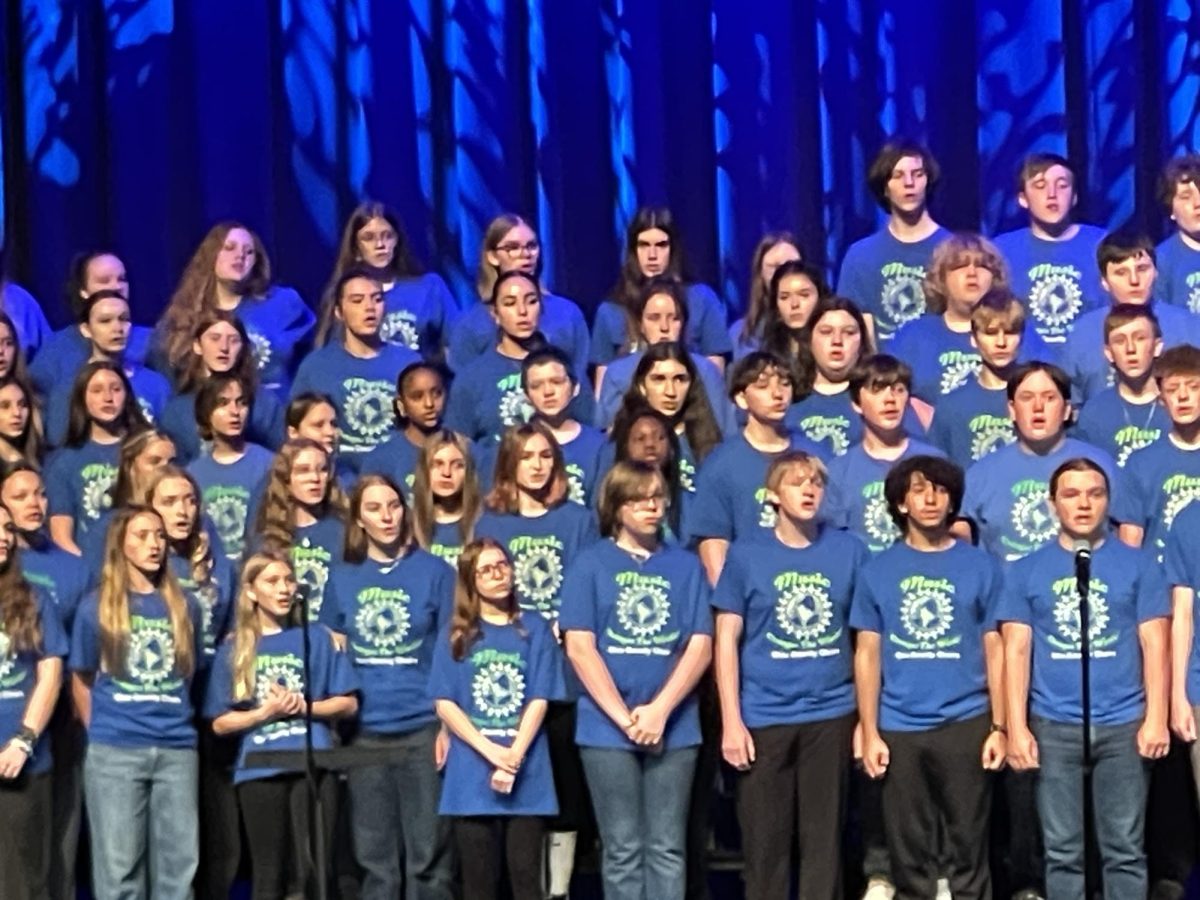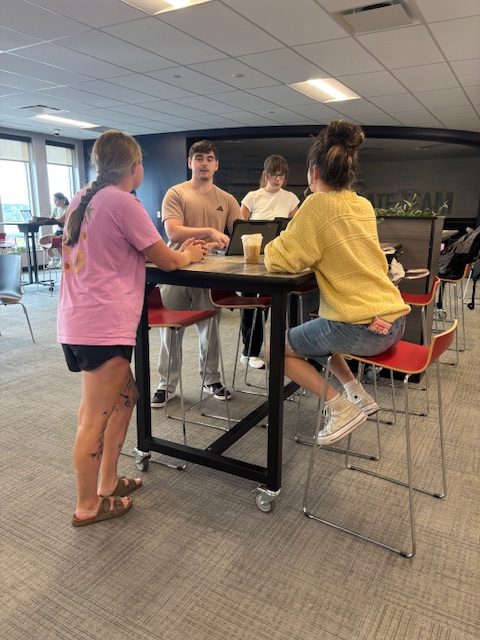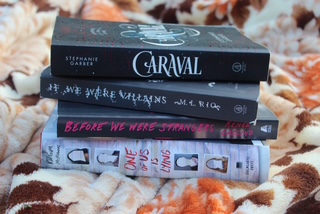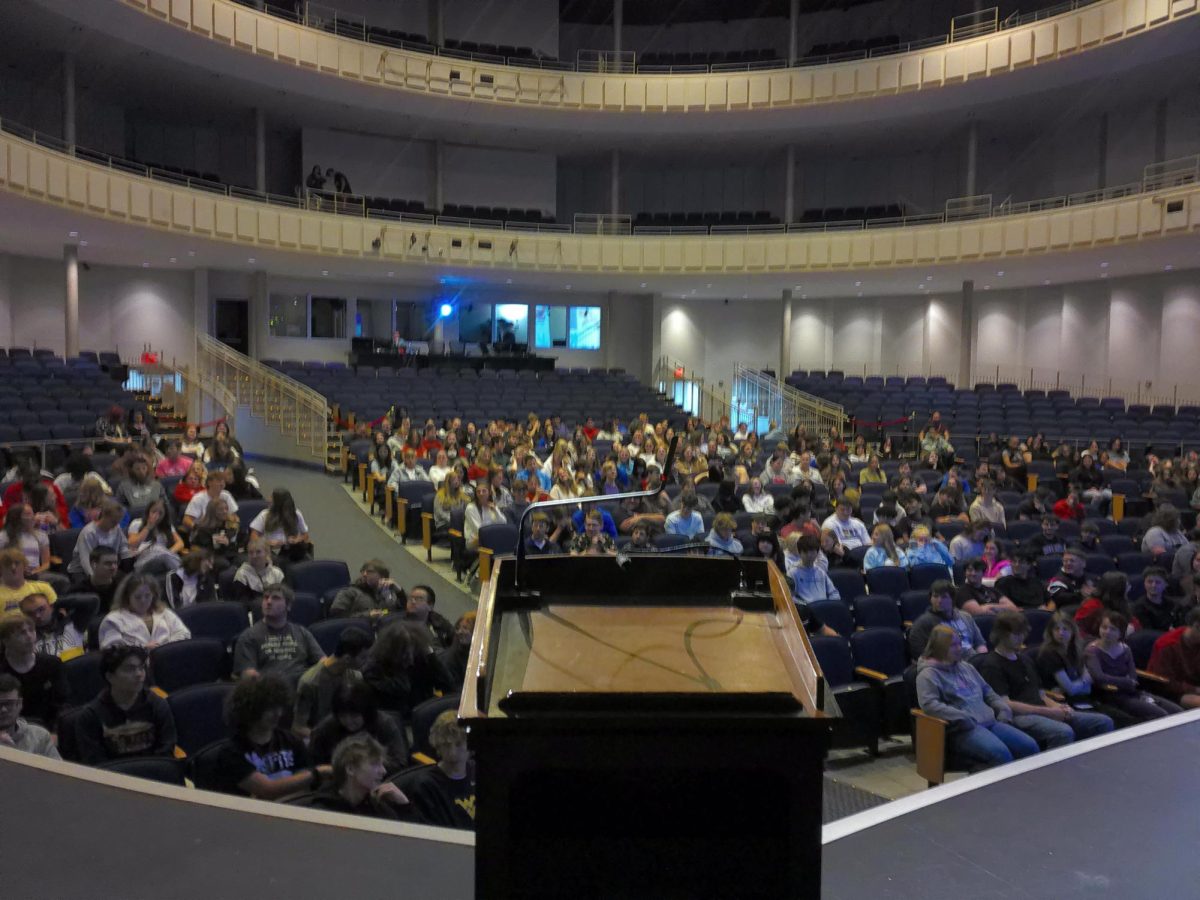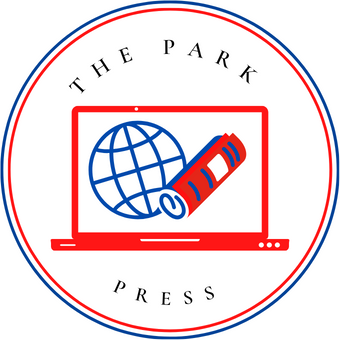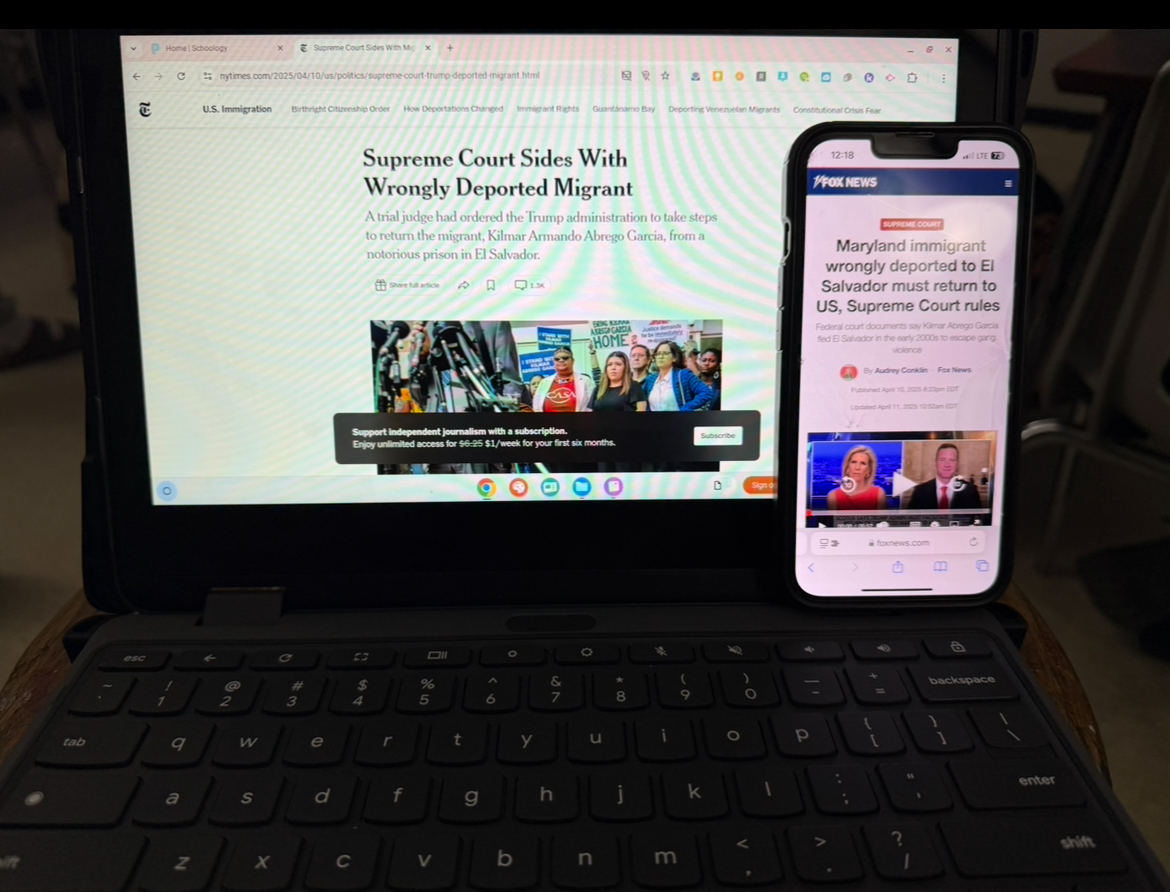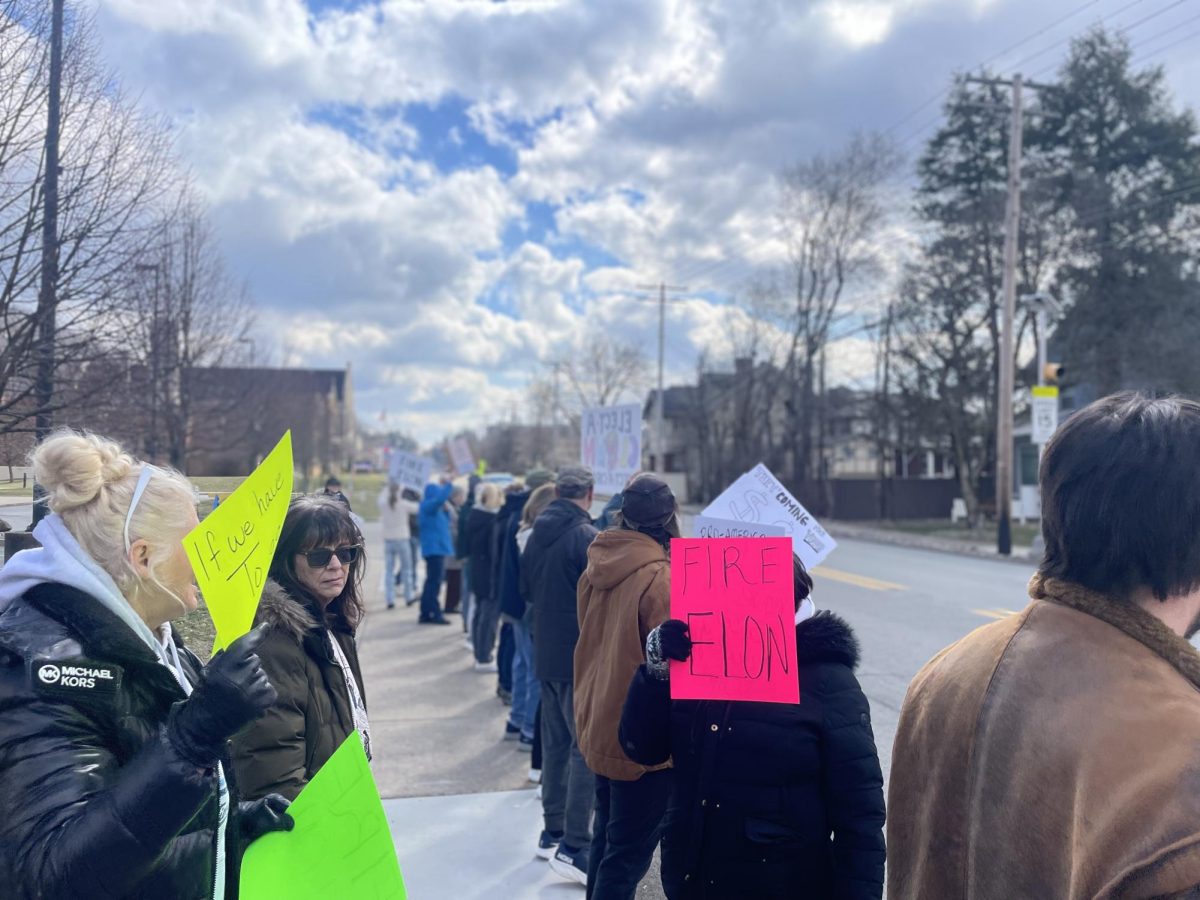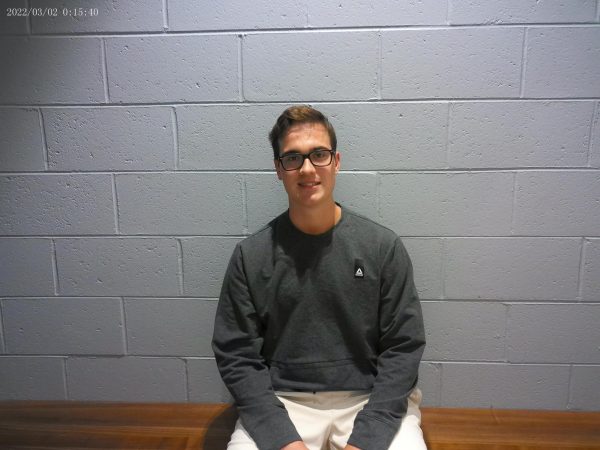With the far reaching grasps of the internet and social media, people are flooded with AI generated pictures and writings, unqualified, pontificating podcasters, emotionally charged headlines, and political distractions. In today’s current political and digital environment having the ability to think critically is an absolute necessity.
“I do not feel that I have been explicitly taught how to view information online, and I feel that at times I have been misled because of it ,” said a senior, Wyatt Wheeler.
When viewing information online, whether researching or just scrolling through social media, it is important not only to have the ability to decipher what is true from what is false but also to evaluate the significance of certain pieces of information. It is so easy to fall into a rabbit hole of distracting information that is meant to incite visceral reactions whether good or bad. It is completely understandable that the average internet consumer would make a misleading assumption based on an initial snippet- picture, headline, or captions – instead of looking further into the subject being presented. After all, even esteemed news sources will often bite at the bait of strategic political ploys that aim to pull attention away from issues that are truly important. For example, a recent security fluke left military information in the hands of an Atlantic journalist via an irresponsibly formed group chat. This group chat included the head of the Department of Defense, Pete Hegseth, and other national security officials. In the chat Hegseth discussed an airstrike against Yemen. On the curtails of that issue, Hegseth attracted attention for seemingly anti-Islamic tattoos he had on display during a training exercise at Pearl Harbour. While both of these stories are problematic, the second one could be as a distraction from the severity of security failure.
The overwhelming flood of information fueled by social media and the internet is nothing new. In fact, this is the only media environment that students and young people in general have ever experienced. That being said, it still remains very difficult to shift through all this information and interpret what to trust especially with the recent ideological attacks on fact checking, the increase of unregulated media like podcasts, and advancements of artificial intelligence.
“There is so much information at my fingertips it is sometimes hard to take it all in at once, and it can be overwhelming,” said Wheeler.
The most effective way to combat this sea of information is simply by developing a good foundation of media literacy through critical thinking. Students at Wheeling Park are encouraged to think critically about what they read in their English classes along with sources they use to write papers . They are taught to analyze the source or author of certain writings before they include them in their writings.
“Based on a research paper that I did for AP English, I generally check who wrote it. You have to research the source and make sure they are credible and look at what else they might have published. There’s a website you could go to see where they lie on a political spectrum, and you aim to get more of a centrist than anything leaning to one side or another,” said junior, Heath Miller
This idea of confirming credibility and analysing sources fully seems to be abandoned when it comes to evaluating the cluster of political information presented to us in our daily lives . There is a careless attitude when it comes to consuming information outside of the classroom.
“I know there is fake information out there, but if I consume fake information it won’t be the worst thing,” said Miller.
As addressed before, the blame for this kind of attitude cannot not be placed on the average internet consumer; it should instead be attributed to the chaotic nature of the current media and political environment. With so much content online, people tend to get stuck thoughtlessly scrolling through emotionally charged information that presents a small piece of a much broader story. Even when casually skimming through For example say someone were to come across a misleading headline that appeals to them emotionally and politically, and without researching beyond that initial eye-catcher, they not only fall for this misleading fragment, they share it further spreading the confusion.
“People often already have their agenda in mind, so they only look at news sources that cater to what they want to hear,” said AP and CP civics teacher, Mr. Stanton.
So, why are some people so quick to come to conclusions without knowing the full story? With search engines and the development of open AI software, there is a sort of instant gratification system that requires little to no thinking. This along with social media has nurtured short attention spans and discourages critical thinking. Some questions do not have an immediate answer. Political problems and information in particular have to be fully digested before any conclusions can be drawn.
“I definitely think [social media] has taken harm to my attention span,” said Miller.
The increasingly divided political climate has encouraged people to search for information that can be weaponized rather than issues of importance. Along with that, there have been political attacks on traditional journalism and media, leading people to sources that pose as “free thinking” but lack any journalistic integrity. While there is nothing wrong with listening to something like a podcast, it is important to be careful about using them as a source of information. It should be noted that a lot of podcasts are presented as purely entertainment and are not held to journalistic standards. That being said, there are certain podcasts that blur the lines between entertainment and informative, making it tempting for people to turn to them as alternatives to regulated new sources, but as said before, try resists the urge to fall into potentially misleading information sources.
Especially when viewing political information, it is crucial to be able to identify bias. The first thing to recognize is, any political news site, article, or post will have a certain amount of bias to it. It is unrealistic to expect anything political to be completely nonpartisan; whether by a conscious effort or not, any interpretation of political events will be rooted within a certain ideological belief.
“They need to just be aware that a lot of times it’s probably going to be some sort of editorial or opinion piece. Someone could be sharing a news article, but what you want to do is check it out and go to other websites, search the news story on other websites and see what different perspectives are saying about it,” said, Mr. Stanton.
Although people should try to create their own way of analysing political content, here are some steps you can consider when viewing political information online.
- Always approach information online with a bit of skepticism; try not to make any
- Identify any political bias that resource might have while also trying to limit your own ideological leanings
- Ask questions like: “Is the source of the information reliable?”, “Who does the information seem to benefit?”, “What is the significance of the piece of information?”.
Because the political world and the internet show no signs of calming, the importance of being able to think critically about political information cannot be overstated. The point is not to create an unhealthy distrust of everything that is viewed online, the point is to simply create a sense of media literacy that will allow people to identify issues that truly affect them.












